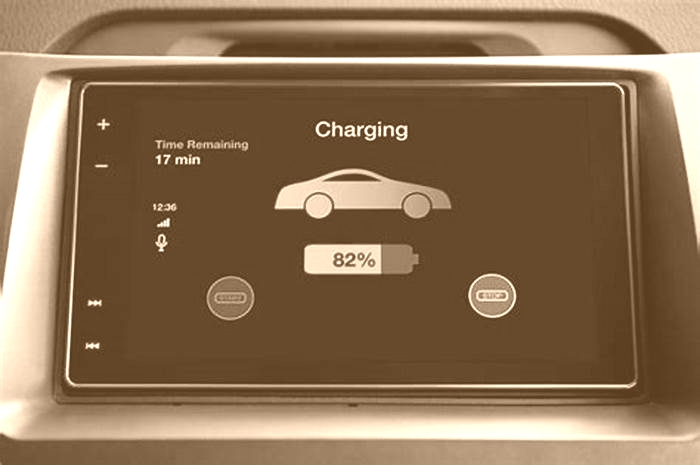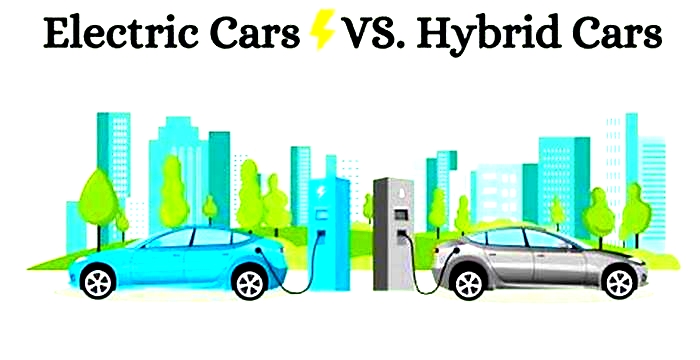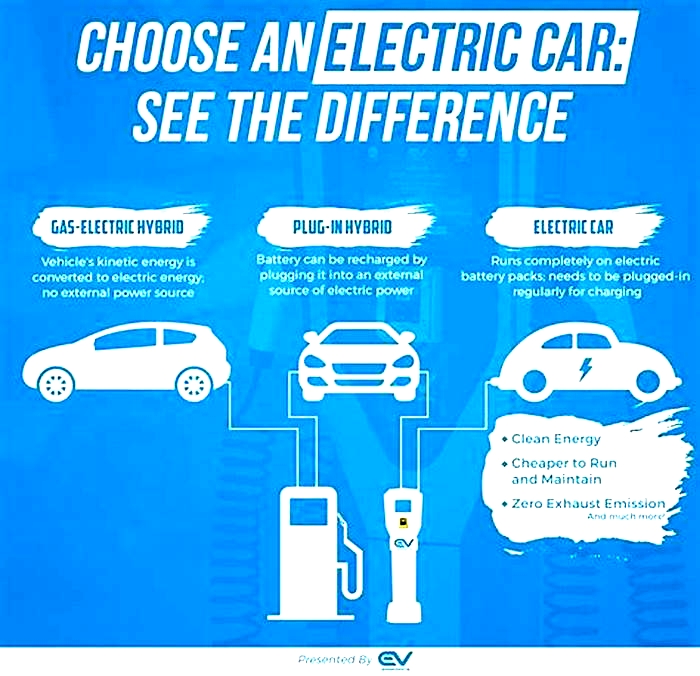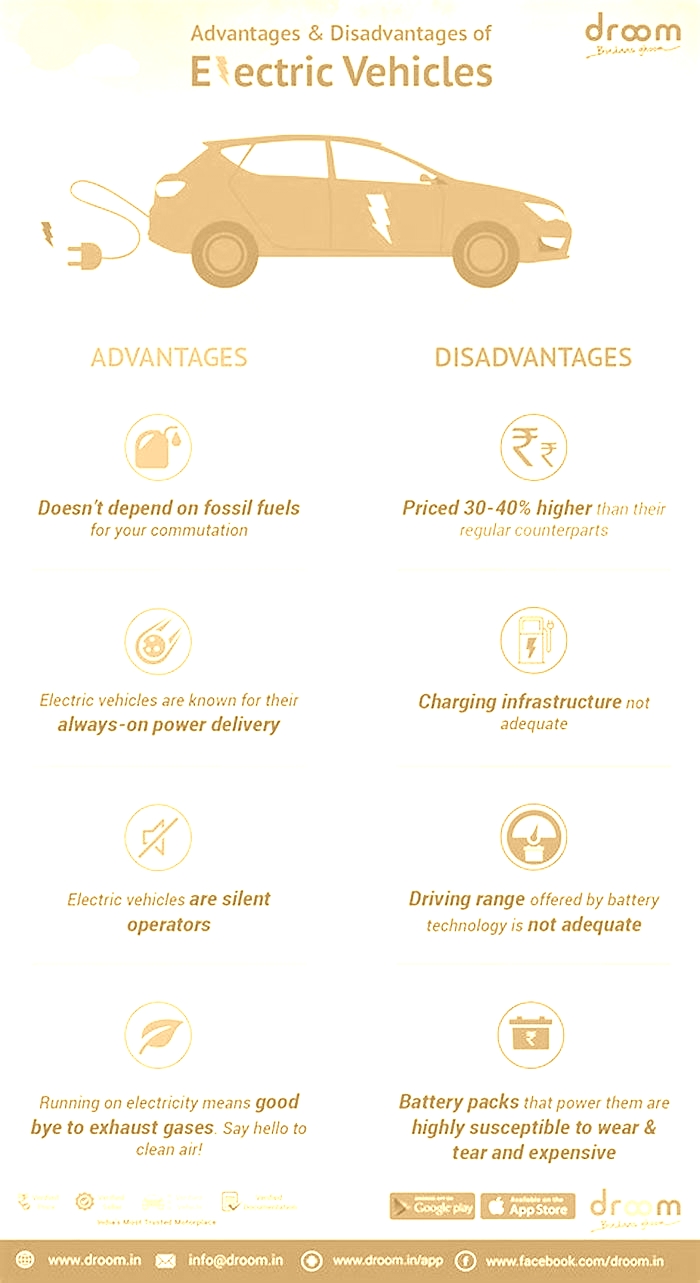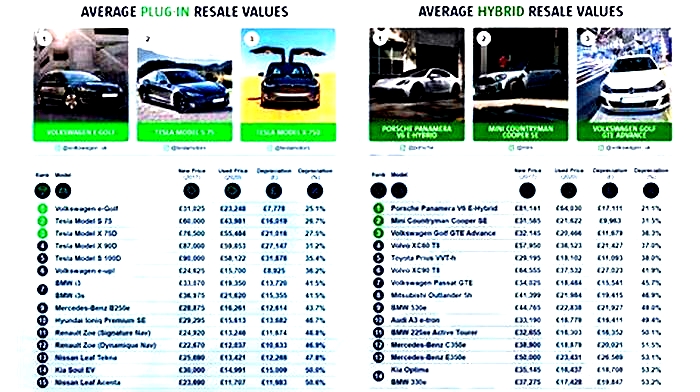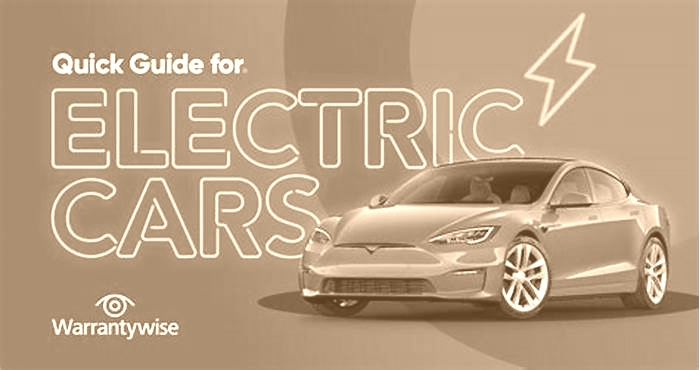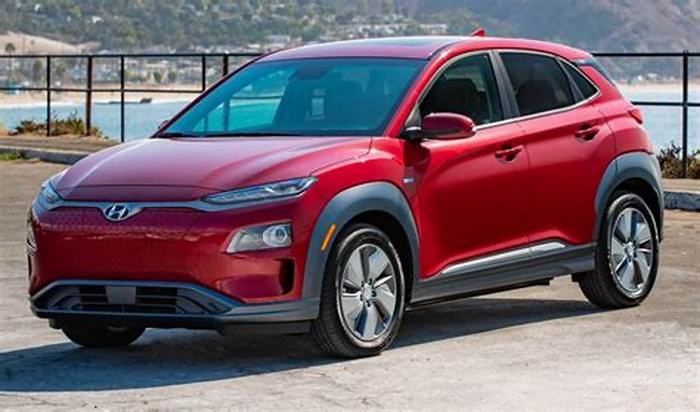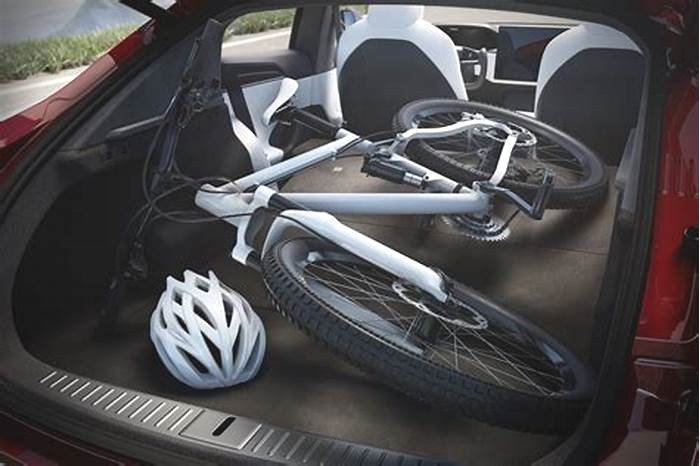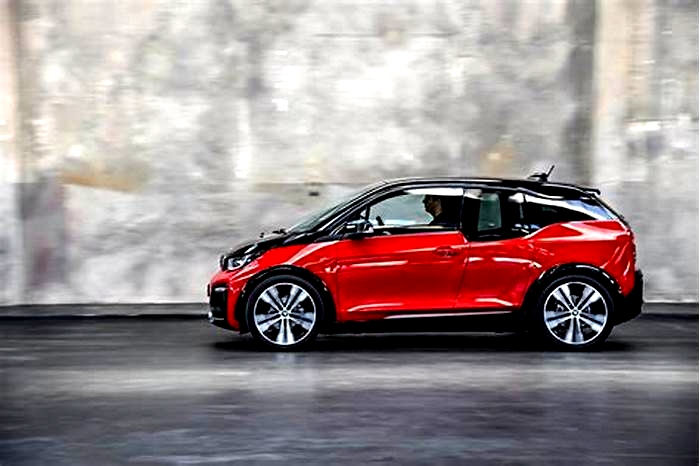Electric Vehicles with the Quickest Acceleration 0 60 mph times
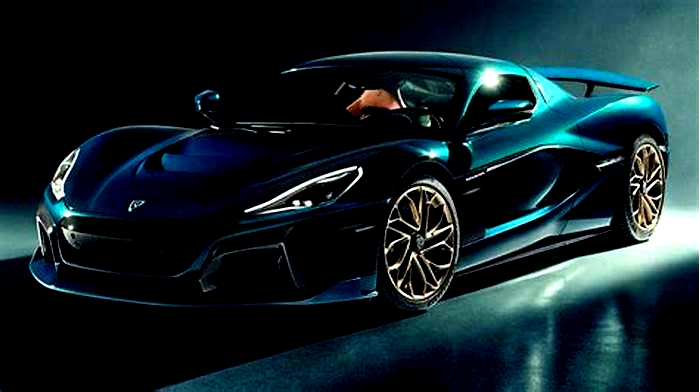
Electric Cars 0-60
2008 Tesla Roadster 1.5
0-60 mph 4.2Quarter mile 13.1Compare
185-kW / 53-kWh ElectricRWDConvertible
2009 Tesla Roadster 2.0
0-60 mph 4.0Quarter mile 12.9Compare
Single-Speed Trans.215-kW / 53-kWh ElectricRWDConvertible
2010 Tesla Roadster 2.0 Sport
0-60 mph 3.7Quarter mile 12.6Compare
Single-Speed Trans.215-kW / 53-kWh ElectricRWDConvertible
2011 Tesla Roadster 2.5 Sport
0-60 mph 3.6Compare
Single-Speed Trans.215-kW / 53-kWh ElectricRWDConvertible
2013 Tesla Model S 85
0-60 mph 5.0Quarter mile 13.2Compare
Single-Speed Trans.270-kW / 85-kWh ElectricRWDSedan
2013 Tesla Model S Signature Performance P85+
0-60 mph 4.0Quarter mile 12.7Compare
Single-Speed Trans.310-kW / 85-kWh ElectricRWDSedan
2013 Tesla Model S Signature Performance P85
0-60 mph 3.9Quarter mile 12.4Compare
Single-Speed Trans.310-kW / 85-kWh ElectricRWDSedan
2014 Tesla Model S 60
0-60 mph 5.5Quarter mile 14.2Compare
Single-Speed Trans.225-kW / 60-kWh ElectricRWDSedan
2014 Tesla Model S P85D
0-60 mph 3.3Quarter mile 11.8Compare
Single-Speed Trans.165+350-kW / 85-kWh ElectricAWDSedan
2014 Tesla Model S P85+
0-60 mph 3.9Quarter mile 12.5Compare
Single-Speed Trans.310-kW / 85-kWh ElectricRWDSedan
2015 Tesla Model S P85D
0-60 mph 3.2Quarter mile 11.7Compare
Single-Speed Trans.165+350-kW / 85-kWh ElectricAWDSedan
2015 Tesla Model S P85D 'Ludicrous'
0-60 mph 2.8Quarter mile 10.9Compare
Single-Speed Trans.193+375-kW / 85-kWh ElectricAWD
2015 Tesla Model S 70D
0-60 mph 5.1Quarter mile 13.8Compare
Single-Speed Trans.193+193-kW / 70-kWh ElectricAWDSedan
2015 Tesla Model S P90D 'Ludicrous'
0-60 mph 2.7Quarter mile 11.0Compare
Single-Speed Trans.193+375-kW / 90-kWh ElectricAWDSedan
2016 Tesla Model S 70
0-60 mph 5.5Compare
Single-Speed Trans.285-kW / 70-kWh ElectricRWD
2016 Tesla Model S 85
0-60 mph 5.4Compare
Single-Speed Trans.285-kW / 85-kWh ElectricRWD
2016 Tesla Model X P90D 'Ludicrous'
0-60 mph 3.2Quarter mile 11.7Compare
Single-Speed Trans.193+375-kW / 90-kWh ElectricAWDCrossover / SUV
2016 Tesla Model X 90D
0-60 mph 4.8Compare
Single-Speed Trans.193+193-kW / 90-kWh ElectricAWDCrossover / SUV
2016 Tesla Model X 75D
0-60 mph 5.5Quarter mile 14.1Compare
Single-Speed Trans.193+193-kW / 75-kWh ElectricAWDCrossover / SUV
2016 Tesla Model S 90D
0-60 mph 4.2Compare
Single-Speed Trans.193+193-kW / 90-kWh ElectricAWD
2016 Tesla Model S 60
0-60 mph 5.0Quarter mile 13.6Compare
Single-Speed Trans.285-kW / 60-kWh ElectricRWD
2016 Tesla Model S P90D
0-60 mph 2.8Compare
Single-Speed Trans.193+375-kW / 90-kWh ElectricAWD
2017 Tesla Model X P100D 'Ludicrous'
0-60 mph 2.8Compare
Single-Speed Trans.193+375-kW / 100-kWh ElectricAWDCrossover / SUV
2017 Tesla Model S P100D 'Ludicrous'
0-60 mph 2.4Quarter mile 10.6Compare
Single-Speed Trans.193+375-kW / 100-kWh ElectricAWDSedan
2017 Tesla Model S P100D 'Ludicrous+'
0-60 mph 2.3Quarter mile 10.5Compare
Single-Speed Trans.193+375-kW / 100-kWh ElectricAWDSedan
2018 Tesla Model 3 Dual Motor Performance
0-60 mph 3.2Quarter mile 11.8Compare
Single-Speed Trans.137+202-kW / 77.8-kWh ElectricAWDSedan
2018 Tesla Model S 100D
0-60 mph 3.9Quarter mile 12.4Compare
Single-Speed Trans.193+285-kW / 100-kWh ElectricAWDSedan
2018 Tesla Model 3 Dual Motor Long Range
0-60 mph 4.0Quarter mile 12.5Compare
Single-Speed Trans.137+180-kW / 77.8-kWh ElectricAWDSedan
2018 Tesla Model 3 Long Range
0-60 mph 4.8Quarter mile 13.5Compare
Single-Speed Trans.202-kW / 77.8-kWh ElectricRWDSedan
2019 Tesla Model 3 Dual Motor Performance
0-60 mph 3.2Quarter mile 11.7Compare
Single-Speed Trans.137+202-kW / 77.8-kWh ElectricAWDSedan
2019 Tesla Model 3 Plus
0-60 mph 5.0Quarter mile 13.5Compare
Single-Speed Trans.239-kW / 53-kWh ElectricRWDSedan
2019 Tesla Model 3 Dual Motor Long Range
0-60 mph 4.0Quarter mile 12.5Compare
Single-Speed Trans.137+180-kW / 77.8-kWh ElectricAWDSedan
2019 Tesla Model 3 Dual Motor Performance
0-60 mph 3.1Quarter mile 11.6Compare
Single-Speed Trans.158+219-kW / 77.8-kWh ElectricAWDSedan
2020 Tesla Model S Performance 'Ludicrous+'
0-60 mph 2.4Quarter mile 10.7Compare
Single-Speed Trans.193+375-kW / 100-kWh ElectricAWDSedan
2020 Tesla Model Y Long Range
0-60 mph 4.4Quarter mile 12.7Compare
Single-Speed Trans.158+220-kW / 77.8-kWh ElectricAWDCrossover / SUV
2020 Tesla Model S Performance 'Ludicrous+' (Cheetah Stance)
0-60 mph 2.4Quarter mile 10.6Compare
Single-Speed Trans.193+375-kW / 100-kWh ElectricAWDSedan
2020 Tesla Model Y Performance
0-60 mph 3.6Quarter mile 12.0Compare
Single-Speed Trans.158+235-kW / 77.8-kWh ElectricAWDCrossover / SUV
2020 Tesla Model X Performance 'Ludicrous+'
0-60 mph 2.6Compare
Single-Speed Trans.193+375-kW / 100-kWh ElectricAWDCrossover / SUV
2022 Tesla Model Y Performance
0-60 mph 3.5Quarter mile 12.0Compare
Single-Speed Trans.158+235-kW / 82.1-kWh ElectricAWDCrossover / SUV
2022 Tesla Model S Plaid (VHT Prepped Surface)
0-60 mph 2.0Quarter mile 9.3Compare
Single-Speed Trans.205+205+375-kW / 100-kWh ElectricAWDSedan
2022 Tesla Model S Plaid
0-60 mph 2.1Quarter mile 9.3Compare
Single-Speed Trans.205+205+375-kW / 100-kWh ElectricAWDSedan
2022 Tesla Model S Dual Motor Long Range Plus
0-60 mph 3.5Quarter mile 11.9Compare
Single-Speed Trans.193+205-kW / 100-kWh ElectricAWDSedan
2023 Tesla Model Y Dual Motor Long Range
0-60 mph 4.4Quarter mile 12.8Compare
Single-Speed Trans.158+220-kW / 84.6-kWh ElectricAWDCrossover / SUV
2024 Tesla Model 3 Dual Motor Long Range
0-60 mph 4.0Quarter mile 12.3Compare
Single-Speed Trans.84.6-kWh ElectricAWDSedan
2024 Tesla Model 3 Standard Range
0-60 mph 5.6Quarter mile 14.1Compare
Single-Speed Trans.60.9-kWh ElectricRWDSedan
Welcome to Zero to 60 Times
Your number one source for car times
When testing for a cars 0 to 60 time, usually an average of the best two runs, (one in each direction to eliminate the wind factor), is considered in order to determine the final estimate for that vehicles 0 to 60 time. Please keep in mind that a very small percentage of the performance auto stats on Zero to 60 Times .com are based on 0-62 mph car data instead of 0-60 mph times. Likely less than 1% of the 0 to 60 times on this car site are in fact 0-62 mph times, which were mostly from various European sources.
0 to 60 times and quarter mile car stats are determined by a great deal of credible automotive authorities around the world. What most people do not understand about 0-60 times is that they are by no means an exact science. These credible auto sources may test a car one moment and arrive at a different result at a later point in time, despite going to great lengths to keep all the variables the same for each car acceleration test. Another source testing the 0 to 60 times of the same car, is almost certain to arrive at a different 0 to 60 result for that luxury car, sports car, muscle car or whatever. This is because the second source to test the cars acceleration is not going to perform their car 0 to 60 test with the exact same variables as the first one did.
Each 0 to 60 mph and quarter mile test, by each source is different, and usually very different. This is especially true with amateur drivers making an attempt to test the 0 to 60 acceleration stats or the quarter mile times of their muscle car, sports car, luxury car, hybrid car or whatever. Non-professionally conducted car stat tests are likely to be much more inaccurate, and have a greater range of results as opposed to the 0 to 60 tests executed by professionals in a relatively controlled setting, which usually employs the use of highly-trained performance car drivers.
0-60 times are by no means an exact science
The editors of Zero to 60 Times made the decision to create a directory of various sports car, luxury car, hybrid car, muscle car, classic car, exotic car and import car stats, which reference to simply one 0 to 60 and quarter mile result per car. Although Zero to 60 Times created this car site in this popular format, it does not best reflect the philosophy of the editors. The editors collective philosophy is that 0-60 times should be provided more in terms of a range of acceptable results, rather than the popular idea of furnishing one finite 0-60 times result or quarter mile time. For example, perhaps a 2019 BMW M3 0-60 mph time should be listed with a zero to sixty time of 3.5 to 3.9 seconds or perhaps a 2008 Corvette ZO6 0 to 60 ranging from 3.6 to 4.0 seconds. This method may be the best way to list car acceleration times because it would take into consideration a balance of all the professional car tests as well as a number of amateur 0 to 60 mph and quarter mile results for each vehicle.
We hope Zero to 60 Times has the car acceleration information that you are looking for. Our team has worked hard to provide you with a wide assortment of car stats comprising of electric cars, hybrid cars, muscle cars, sports cars, classic cars, import cars, performance SUVs and more. Our team of car guys at Zero to 60 Times is deeply passionate about cars, especially when it comes to 0 to 60 and quarter mile times. Make sure to check out the fastest cars page for information on the worlds quickest accelerating cars. Many of the fastest cars on this list boast incredible horsepower specs. Yet others compensate for their lesser horsepower with reduced curb weight. So altogether, the power-to-weight ratio is usually the most predictive on how quickly a car can accelerate. Finally, more and more high-powered models are evolving to all-wheel drive setups in order to maintain traction and improve 0-60. We dont expect this trend to change.
We are constantly adding new 2023, 2024, 2025 and even hard to find vintage 0-60 and quarter mile times as well as exciting pictures in our numerous car photo galleries, so make sure to bookmark us as a reference and check back regularly for new car updates. If you enjoy our automotive website, then we encourage you to bookmark us and link to us from your blog, forum, website or social media page!
BMW 0-60 Mph Times: ALL 24 Models Tested (Results)
Heres an overview of the 0-60 mph times for a variety of BMW models.
From the ultra-fast BMW M Series to the more eco-friendly offerings, understanding these acceleration times is key for those who seek a balance between thrill and practicality in their driving experience.
The BMW M Series, specifically engineered for performance, features some of the fastest BMW models:

- M2 Competition Coupe: 0-60 mph in 4.0 seconds
- M3 Sedan: 0-60 mph in 3.9 seconds
- M4 Coupe: 0-60 mph in 3.8 seconds with Competition Package
It is essential to keep in mind the various factors that might affect the recorded times, and recognize that a single number may not tell the whole story.
We also have a good list of popular names for BMW cars.
BMW Sedans
BMW sedans are known for their impressive performance and luxurious features.
In this section, well explore the 0-60 mph times for the 3 Series, 5 Series, and 7 Series models.
3 Series

The BMW 3 Series is a popular choice among driving enthusiasts for its balanced performance and comfort.
Some notable 0-60 mph times for the 3 Series sedan are:
- 2022 330i xDrive Sedan: 0-60 mph in 5.3 seconds
5 Series
As a midsize luxury sedan, the BMW 5 Series offers a blend of power and refinement.
Here are some 0-60 mph times for various 5 Series models:
- 2021 540i: 0-60 mph in 4.7 seconds
That said, there have also been both good and bad years across the BMW 5 series.
7 Series
The flagship BMW 7 Series is a full-size luxury sedan that showcases the brands innovations and technological advancements.

0-60 mph times for the 7 Series lands around 4.5 seconds.
BMW Coupes
4 Series
The BMW 4 Series Coupe offers a blend of style and performance suitable for a sporty and comfortable ride.
Below are some 0-60 mph times for the 4 Series:
- BMW 430i Coupe: 0-60 mph in 5.5 seconds
- BMW 430i xDrive Coupe: 0-60 mph in 5.3 seconds
- BMW M440i xDrive Coupe: 0-60 mph in 4.3 seconds
Here are the best and worst years for the BMW 4 series
8 Series
Moving on to the luxurious and powerful BMW 8 Series, these coupes boast impressive 0-60 mph times that make them some of the fastest models in the lineup:
- BMW 840i Coupe: 0-60 mph in 4.7 seconds
- BMW 840i xDrive Coupe: 0-60 mph in 4.5 seconds
- BMW M850i xDrive Coupe: 0-60 mph in 3.5 seconds
- BMW M8 Competition Coupe: 0-60 mph in 3.0 seconds (official estimate) or 2.5 seconds (as tested by Car & Driver)
M Series
BMW M Series models are specifically engineered for high-performance, delivering impressive acceleration and handling. Here are the 0-60 mph times for some popular M Series coupes:
| Model | 0-60 mph Time |
|---|---|
| M2 Competition Coupe | 4.0 seconds |
| M3 Sedan | 3.9 seconds |
| M4 Coupe | 3.8 seconds (with Competition Package) |
BMW SUVs
BMW offers a range of high-performance SUVs that provide impressive acceleration capabilities.
In this section, we will explore the 0-60 mph times of popular BMW SUV models, including:
X1

The BMW X1 is an agile and compact luxury SUV that offers an engaging driving experience. Equipped with a 2.0-liter turbocharged engine, it delivers:
- 228 horsepower
- 258 lb-ft of torque
With these specifications, the BMW X1 can achieve a 0-60 mph time of approximately 6.3 seconds.
X3
Moving up in size, the BMW X3 offers more space and power while maintaining its sporty handling characteristics. The 2022 BMW X3 comes with a 2.0-liter intercooled turbo premium unleaded engine, producing:
- 248 horsepower @ 5200 rpm
- 258 lb-ft of torque @ 1450 rpm
As a result, the X3 is capable of reaching 60 mph from a standstill in just 7.1 seconds.
Here are the best and worst years for the BMW X3.
X5

The BMW X5 is a midsize luxury SUV that combines performance, utility, and premium features. There are various engine options available for the X5, but the most potent among them is the 4.4-liter V8 turbocharged engine found in the M50i model, which outputs:
- 523 horsepower
- 553 lb-ft of torque
With this powertrain, the BMW X5 M50i can sprint from 0-60 mph in an impressive 4.1 seconds.
X7
As the flagship BMW SUV, the X7 is large, luxurious, and powerful.
The top-of-the-line M50i variant boasts a 4.4-liter V8 turbocharged engine, generating:
- 523 horsepower
- 553 lb-ft of torque

This allows the BMW X7 M50i to achieve a 0-60 mph time of just 4.5 seconds, making it a truly remarkable performer in its segment.
Heres a rundown of the most common issues with the BMW X7.
BMW Electric Vehicles
In this section, we will discuss the 0-60 mph times for BMWs electric vehicle lineup, including the i3, i4, and iX models.
BMW i3
Launched in 2013, the BMW i3 is the brands first offering in the electric vehicle market. It is a compact electric car designed for urban environments and prioritizes efficiency and sustainability.
As for performance, the BMW i3s acceleration time from 0-60 mph is around 7 seconds. Note that this time may vary slightly depending on factors such as vehicle weight, battery charge, and driver skill.
BMW i4

The BMW i4 is a recent addition to the brands electric lineup, offering a sleek and sporty design with enhanced performance. It includes multiple configuration options, with the i4 eDrive40 and the i4 M50 being notable examples.
The i4 eDrive40 achieves a 0-60 mph time of approximately 5.5 seconds, whereas the more powerful i4 M50 comes in at an impressive 3.9 seconds.
The differences in times reflect the upgraded electric motors and performance-oriented design of the M50 variant.
BMW iX
The BMW iX is an all-electric SUV that blends luxury, technology, and performance. Within the iX lineup, there are multiple trims available such as the iX3, iX5, and the performance-focused iX M60.

For the iX3, the 0-60 mph time is estimated at 6.8 seconds. Meanwhile, the iX5 can reach 60 mph in as little as 4.6 seconds.
The top-of-the-line iX M60 delivers even more electrifying performance, with a 0-60 mph time of just 3.2 seconds.
In conclusion, BMWs electric vehicles offer a variety of performance levels, with acceleration times depending on the specific model and trim.
With a commitment to sustainable luxury and performance, BMW continues to push the boundaries of electric mobility.
Related: Why Are Some Cars Limited To 155 MPH? (Explained & Solved)
Understanding 0-60 MPH Times
The 0-60 mph time is a popular performance measure for vehicles, especially in the context of sports cars and performance sedans. It represents the time a car takes to accelerate from complete standstill to a speed of 60 miles per hour.
Historically, 0-60 mph times have seen significant improvements over the years. In the 1950s, small cars typically took over 30 seconds to achieve this acceleration feat, and sports cars struggled to break the 10-second barrier.
When measuring a cars 0-60 time, a common practice is to take an average of the two best runs, with one run in each direction to eliminate the wind factor. This helps provide a more accurate and consistent estimate of the vehicles acceleration performance. It is important to note that factors such as driver skill, weather conditions, and the state of the vehicle can all have an impact on the final 0-60 mph figure.
Therefore, slight variations in results may be seen across different sources.
BMW, known for its focus on performance and driving dynamics, offers a wide range of models with impressive 0-60 mph times.
Was this article helpful?
 Did you find wrong information or was something missing?
Did you find wrong information or was something missing?We would love to hear your thoughts! (PS: We read ALL feedback)

